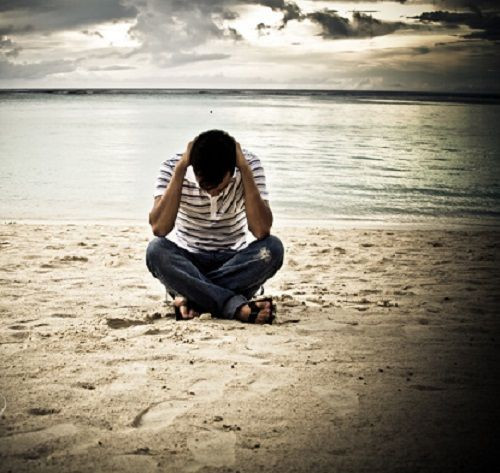Migraine Sufferers Under 30 Six Times More Likely To Be Depressed, Four Times Likelier To Have Suicidal Thoughts

Migraines, recurring headaches of moderate to severe pain, are three times more common in women than men, and affect about 12 percent of the population. It’s no wonder these severe headaches can be a nuisance, leaving those who suffer anxious and stressed. If these symptoms become a continuous cycle, it makes sense that they would lead to other illnesses, and that’s exactly what one new study found. Migraine sufferers — especially those under 30 years old — are more likely to be depressed.
Researchers with the University of Toronto found that 8.4 percent of men and 12.4 percent of women who suffered migraines were likely to be depressed as well, compared to 3.4 percent and 5.7 percent who didn’t suffer from migraines, respectively. Even worse, women under 30 years old were six times likelier to be depressed than those 65 and older who suffered migraines.
They looked at associations between depression and migraines among more than 67,000 respondents to the 2005 Canadian Community Health Survey. More than 6,000 respondents had been diagnosed with migraines by health care providers, and the rates were in line with previous trends: One out of every seven women had migraines, compared to one out of every 16 men.
But feelings of depression also led to thoughts of suicide in many individuals, with women entertaining the thought more often. Among migraine sufferers, 15.6 percent of men and 17.6 percent of women were likely to “seriously consider taking their own life,” compared to 7.9 percent of men and 9.1 percent of women who didn’t get migraines. Those under 30 were also four times more likely to consider it than those 65 and above. Being unmarried and having a lower income also contributed to these thoughts.
“We are not sure why younger migraineurs have such a high likelihood of depression and suicidal ideation,” Meghan Schrumm, co-author of the study, said in a statement. “It may be that younger people with migraines have not yet managed to find adequate treatment or develop coping mechanisms to minimize pain and the impact of this chronic illness on the rest of their lives.”
Migraines can’t be cured. They can lead to an interconnected downward spiral of all kinds of problems. Studies have linked migraines to heart attacks, sleep disorders, seizures, fever, and even low income. But there are steps a person can take to alleviate symptoms. Mayo Clinic recommends muscle relaxation exercises, such as yoga or meditation, as well as getting enough sleep (without oversleeping), spending time to relax, and keeping a headache diary. A patient may also take a range of different medications prescribed by their doctors.
Source: Fuller-Thomson S, Schrumm M, Brennenstuhl S. Migraine and Despair: Factors Associated with Depression and Suicidal Ideation among Canadian Migraineurs in a Population-Based Study. Depression and Research Treatment. 2013.



























